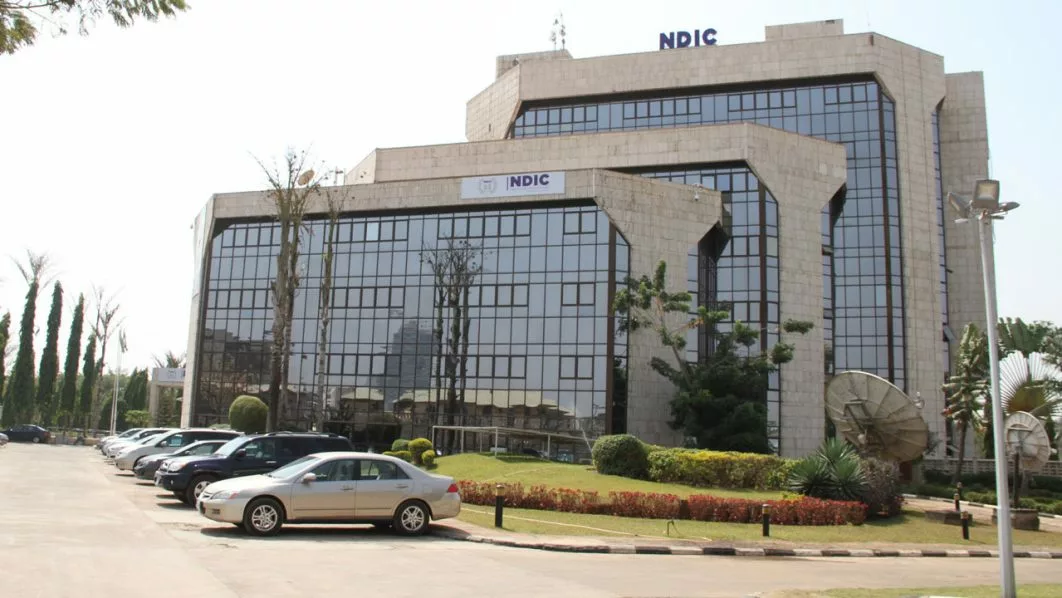Jerry Dike, a depositor of Ally Microfinance Bank, Dutse, Abuja was in utter disbelief on hearing the news of revocation of the bank licence recently by the Central Bank of Nigeria (CBN). He was not only cast into a rude shock; he was in panic as to what becomes of his hard-earned savings.
But before he could sink deeper into the confusion that momentarily engulfed his life, a seemingly instant respite came his way. He had received a short message service (SMS) from the Nigeria Deposit Insurance Corporation (NDIC) inviting him to come to the premises of the same bank the following day to verify his deposits and subsequently get paid the insured sum. Jerry could receive up to a maximum limit of N200,000 as insured sum, depending on his balance in the closed bank.
Dike held the news as a delicate piece, pondering whether or not to believe it. He reluctantly headed for the premises of the bank the following day with a slim hope. However, all that gloom disappeared as he saw the bank opened by the NDIC officials who were already on ground to commence verification of depositors. To further bolster his confidence, he was warmly received and verified by confirming documents he brought forward as proof of account ownership and means of identification. He was consequently profiled for payment of her insured sum, which would be credited into the alternate account she had provided within seven days.
The story was not different with Obianuju Udeogu, a depositor of FCT Microfinance Bank, Garki, Abuja that was also closed by the CBN. The despair that hanged on Obianuju the previous night soon dissolved into high hope with her verification at the premises of the closed bank by the NDIC officials the following morning.
The CBN had on Tuesday 23rd May 2023 published in two Federal Government Official Gazettes, the revocation of operating licences of 179 Microfinance Banks (MFBs) and four Primary Mortgage Banks (PMBs) pursuant to Section 12 of the Banks and Other Financial Institutions Act (BOFIA) 2020. The apex bank said the closed banks had either remained inactive, insolvent, failed to render returns, closed shop, or ceased to carry on the type of banking business for which they were licensed for more than six months, in contravention of the BOFIA 2020.
However, the anguish that the licence revocation would have brought to the depositors were promptly arrested and converted to excitement by the NDIC which swiftly activated mechanisms for the discharge of its deposit guarantee mandate. The NDIC was established in 1989 to administer the deposit insurance system (DIS) in Nigeria. Deposit insurance system is a financial guaranty to protect depositors in the event of bank failure. It is also an additional measure of safety for the banking system. Cumulatively, deposit insurance is meant to bolster public confidence in the banking system by assuring of safety of depositors funds and mechanisms for orderly distress resolution to minimise disruption to the payment system. Apart from deposit guarantee, other mandate of the NDIC include bank supervision, failure resolution and bank liquidation.
With its instantaneous response on the ongoing verification of depositors of a hugely 179 closed MFBs and four PMBs, NDIC has, once again, brought its operational readiness and resilience to the fore in manner that earned it the admiration of stakeholders. But what exactly has the Corporation done in this particular instance?
Bashir Alhassan Nuhu, Director, Communication and Public Affairs Department of NDIC said the Corporation acted in line with global best practice and International Association of Deposit Insurers’ (IADI) Core Principle which stipulates instant verification and subsequent payment to depositors by a deposit insurer within seven days of becoming the liquidator of a closed bank.
According to Nuhu, based on the collaboration between the CBN and NDIC, and giving its operational readiness, the Corporation mobilised all human and material resources required for immediate verification ahead of the revocation. Nuhu said it was seamless for the NDIC to deploy closing teams to over 188 closed bank premises across 32 states of the federation overnight to take physical control of affairs of the institutions from the operators.
The NDIC spokesperson disclosed that the Corporation took several proactive measures to prevent panic among members of the public and achieve high turnout of depositors of the affected banks to claim their money. In his words: “As part of preparations, the Corporation had set for massive sensitization of depositors and the general public on what happened, plans put in place by the NDIC to protect bank customers and steps to be taken by depositors towards payment of their trapped funds, beginning with the insured sums”.
He continued: “The NDIC rolled out newspaper advertisements simultaneously with the announcement of revocation by the CBN, stating the list and addresses of all the closed banks to avoid a run on the live banks. Timeline and requirements for verification were also given to depositors. Also simultaneously, each depositor was contacted directly through SMS on where specifically to report to for the verification.
It is therefore refreshing that the NDIC rose up to the occasion to prevent suffering of failed MFBs/PMBs depositors following revocation of their banks licences. The Corporation’s effectiveness has once again gone a long way, not only to boost public confidence in the banking system, but also to reinforce the position of the deposit insurance system as a potent financial system safety-net participant.
Shedding more light on this, Nuhu said the Corporation’s response on the recent bank closure showed that the NDIC has been able to overcome the challenges that hitherto occasioned delayed verification and payment to closed bank depositors. On actual reimbursement to the verified depositors, he disclosed that the Corporation had commenced payment of insured sums within the seven days stipulated by IADI. Some of the depositors that were interviewed also confirmed receiving payments. They were full of praises for the NDIC, not only for effectively discharging its mandate, but also for rubbing a soothing balm on the pains which the closure of their banks could have caused.





